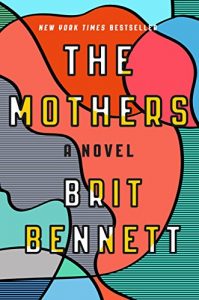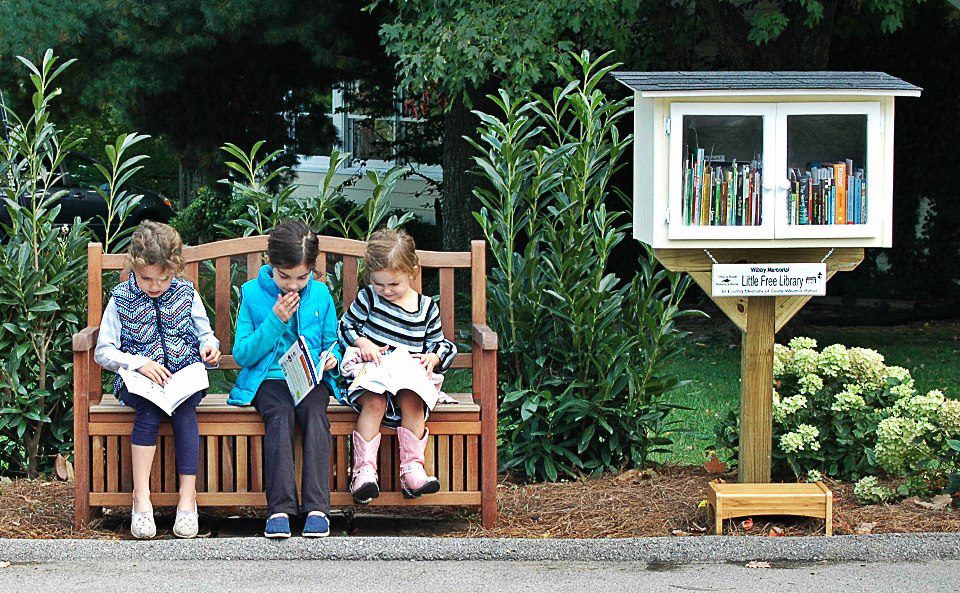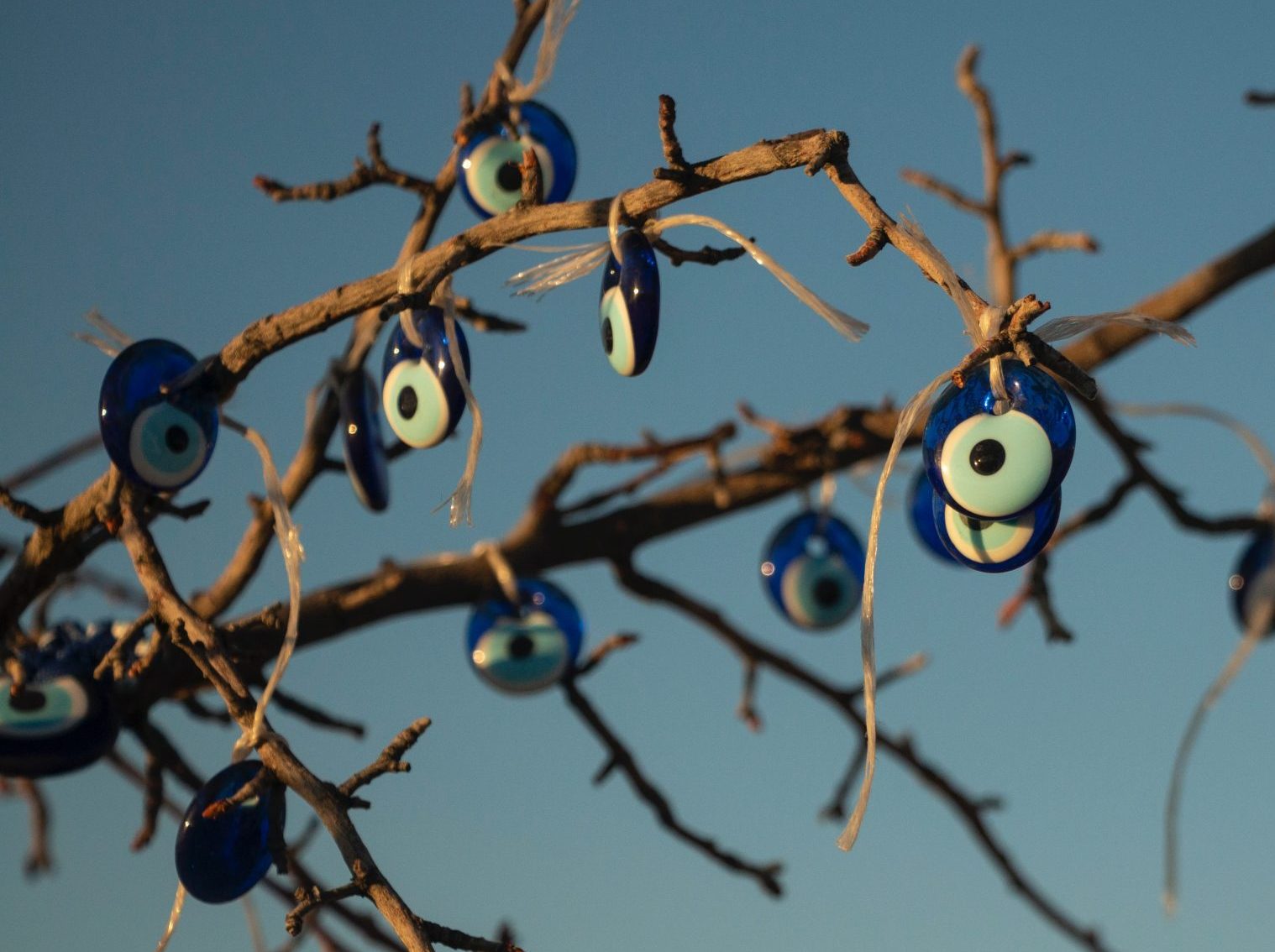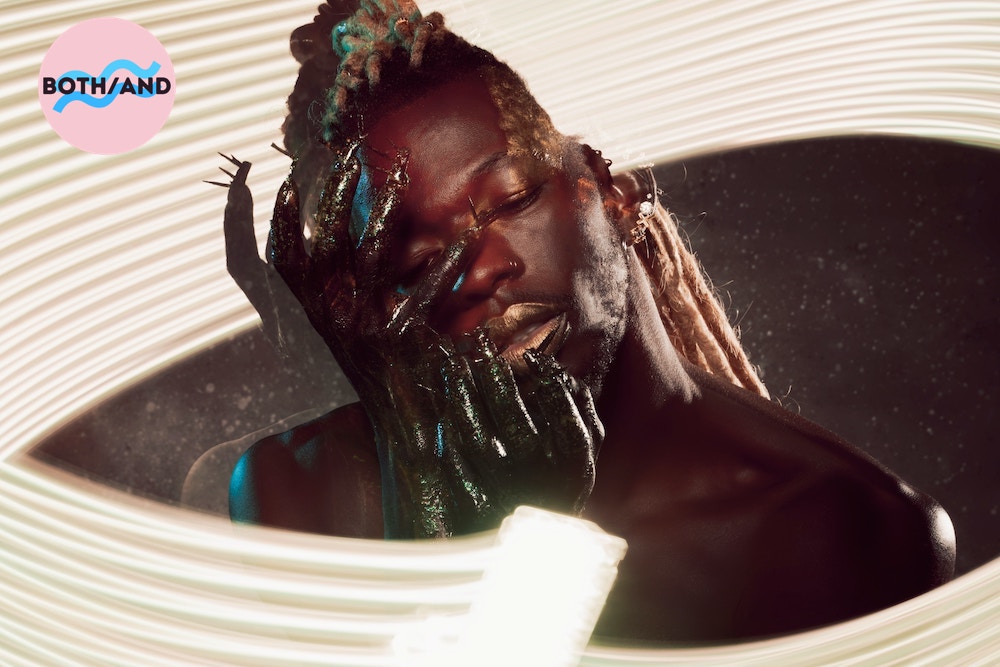Lit Mags
Nadia by Brit Bennett
A story about how grief becomes desire, excerpted from the novel THE MOTHERS

AN INTRODUCTION BY ANGELA FLOURNOY
The title character of Brit Bennett’s story is adrift. Stunned by the death of her mother, and unsure how to move through the world without her, Nadia rides the bus, fake ID in tow, hoping to stumble across a place or a person that might allow her to feel something, anything other than the hurt that threatens to suffocate her. She winds up in a run-down strip joint, and in the first of what will be many attempts at intervention from older, well-meaning women, is saved from a night that might have ended in tragedy.
 “Nadia” is a story about the ways that grief can send you reeling, and how the people we meet during grief’s bleakest moments can feel like the antidote to our pain, a solution to the unsolvable problem of loss. Shortly after the strip club, Nadia runs into Nate, and through the casual, yet calculated language of young people, we see their mutual attraction kindle. The details of Nadia’s mother’s death aren’t shared in these passages, but its suddenness, its violence, hovers over the work, adding shape and nuance to every interaction.
“Nadia” is a story about the ways that grief can send you reeling, and how the people we meet during grief’s bleakest moments can feel like the antidote to our pain, a solution to the unsolvable problem of loss. Shortly after the strip club, Nadia runs into Nate, and through the casual, yet calculated language of young people, we see their mutual attraction kindle. The details of Nadia’s mother’s death aren’t shared in these passages, but its suddenness, its violence, hovers over the work, adding shape and nuance to every interaction.
When I read an advanced copy of The Mothers last spring, I marveled at the ease with which Bennett creates a world that is familiar yet unique. The cadence of the characters might sound Southern, but they’re not in the South; they’re in Oceanside, a working- and middle-class military town just north of San Diego.
Each time we think we know what type of people Bennett is depicting, she adds another layer of nuance, nudging us to see her characters as particular, representatives of no one but themselves. In “Nadia,” and in The Mothers as a whole, Bennett deftly explores a place in which gossip is its own currency, and communal support is often administered with a dose of communal judgment.
Bennett is a writer who shows us how the everyday is often extraordinary, and how our inner lives can contain the most confounding mysteries of all.
– Angela Flournoy
Author of The Turner House
Nadia by Brit Bennett
Brit Bennett
Share article
Excerpted from The Mothers
by Brit Bennett
Nadia hadn’t been to church since her mother’s funeral. Instead, she rode buses. One afternoon, she climbed off downtown in front of the Hanky Panky. She was certain someone would stop her — she even looked like a kid with her backpack — but the bouncer perched on a stool near the door barely glanced up from his phone when she ducked inside. At three on a Tuesday, the strip club was dead, empty silver tables dulled under the stage lights. Black shades pulled in front of the windows blocked the plastic sunlight; in the man-made darkness, fat white men with baseball caps pulled low slouched in chairs facing the stage. Under the spotlight, a flabby white girl danced, her breasts swinging like pendulums.
In the darkness of the club, you could be alone with your grief. Her father had flung himself into Upper Room. He went to both services on Sunday mornings, to Wednesday night Bible study, to Thursday night choir practice although he did not sing, although practices were closed but nobody had the heart to turn him away. Her father propped his sadness on a pew, but she put her sad in places no one could see. The bartender shrugged at her fake ID and mixed her a drink and she sat in dark corners, sipping rum-and-Cokes and watching women with beat bodies spin on stage. Never the skinny, young girls — the club saved them for weekends or nights — just older women thinking about grocery lists and child care, their bodies stretched and pitted from age. Her mother would’ve been horrified at the thought — her in a strip club, in the light of day — but Nadia stayed, sipping the watery drinks slowly. Her third time in the club, an old black man pulled up a chair beside her. He wore a red plaid shirt under suspenders, gray tufts peeking out from under his Pacific Coast Bait & Tackle cap.
“What you drinkin’?” he asked.
“What’re you drinking?” she said.
He laughed. “Naw. This a grown man drink. Not for a little thing like you. I’ll get you somethin’ sweet. You like that, honey? You look like you got a sweet tooth.”
He smiled and slid a hand onto her thigh. His fingernails curled dark and long against her jeans. Before she could move, a black woman in her forties wearing a glittery magenta bra and thong appeared at the table. Light brown streaked across her stomach like tiger stripes.
“You leave her be, Lester,” the woman said. Then to Nadia: “Come on, I’ll freshen you up.”
“Aw, Cici, I was just talkin’ to her,” the old man said.
“Please,” Cici said. “That child ain’t even as old as your watch.”
She led Nadia back to the bar and tossed what was left of her drink down the drain. Then she slipped into a white coat and beckoned for Nadia to follow her outside. Against the slate gray sky, the flat outline of the Hanky Panky seemed even more depressing. Further along the building, two white girls were smoking and they each threw up a hand when Cici and Nadia stepped outside. Cici returned the lazy greeting and lit a cigarette.
“You got a nice face,” Cici said. “Those your real eyes? You mixed?”
“No,” she said. “I mean, they’re my eyes but I’m not mixed.”
“Look mixed to me.” Cici blew a sideways stream of smoke. “You a runaway? Oh, don’t look at me like that. I won’t report you. I see you girls come through here all the time, looking to make a little money. Ain’t legal but Bernie don’t mind. Bernie’ll give you a little stage time, see what you can do. Don’t expect no warm welcome though. Hard enough fighting those blonde bitches for tips — wait till the girls see your light-bright ass.”
“I don’t want to dance,” Nadia said.
“Well, I don’t know what you’re looking for but you ain’t gonna find it here.” Cici leaned in closer. “You know you got see-through eyes? Feels like I can see right through them. Nothin’ but sad on the other side.” She dug into her pocket and pulled out a handful of crumpled ones. “This ain’t no place for you. Go on down to Fat Charlie’s and get you something to eat. Go on.”
Nadia hesitated, but Cici dropped the bills into Nadia’s palm and curled her fingers into a fist. Maybe she could do this, pretend she was a runaway, or maybe in a way, she was. Her father never asked where she’d been. She returned home at night and found him in his recliner, watching television in a darkened living room. He always looked surprised when she unlocked the front door, like he hadn’t even noticed that she’d been gone.
In Fat Charlie’s, Nadia had been sitting in the booth toward the back, flipping through a menu, when Luke Sheppard stepped out of the kitchen, white apron slung across his hips, black Fat Charlie’s T-shirt stretched across his muscular chest. He looked as handsome as she’d remembered from Sunday School, except he was a man now, bronzed and broad-shouldered, his hard jaw covered in stubble. And he was limping now, slightly favoring his left leg, but the gimpiness of his walk, its uneven pace and tenderness, only made her want him more. Her mother had died a month ago and she was drawn to anyone who wore their pain outwardly, the way she couldn’t. She hadn’t even cried at the funeral. At the repast, a parade of guests had told her how well she’d done and her father placed an arm around her shoulder. He’d hunched over the pew during the service, his shoulders quietly shaking, manly crying but crying still, and for the first time, she’d wondered if she might be stronger than him.
An inside hurt was supposed to stay inside. How strange it must to be to hurt in an outside way you couldn’t hide. She played with the menu flap as Luke limped his way over to her booth. She, and everyone at Upper Room, had watched his promising sophomore season end last year. A routine kick return, a bad tackle, and his leg broke, the bone cutting clear through the skin. The commentators had said he’d be lucky if he walked normal again, let alone played another down, so no one had been surprised when San Diego State pulled his scholarship. But she hadn’t seen Luke since he’d gotten out of the hospital. In her mind, he was still in a cot, surrounded by doting nurses, his bandaged leg propped toward the ceiling.
“What’re you doing here?” she asked.
“I work here,” he said, then laughed, but his laugh sounded hard, like a chair suddenly scraped against the floor. “How you been?”
He didn’t look at her, shuffling through his notepad, so she knew he’d heard about her mother.
“I’m hungry,” she said.
“That’s how you been? Hungry?”
“Can I get the crab bites?”
“You better not.” He guided her finger down the laminated menu to the nachos. “There. Try that.”
His hand curved soft over hers like he was teaching her to read, moving her finger under unfamiliar words. He always made her feel impossibly young, like two days later, when she returned to his section and tried to order a margarita. He laughed, tilting her fake ID toward him.
“Come on,” he said. “Aren’t you, like, twelve?”
She narrowed her eyes. “Oh fuck you,” she said, “I’m seventeen.”
But she’d said it a little too proudly and Luke laughed again. Even eighteen — which she wouldn’t turn until late August — would seem young to him. She was still in high school. He was twenty-one and had already gone to college, a real university, not the community college where everyone loafed around a few months after graduation before finding jobs. He knew things and he knew girls, college girls, girls who wore high heels to class, not sneakers, and carried satchels instead of backpacks, and spent their summers interning at Qualcomm or California Bank & Trust, not making juice at the pier. She imagined herself in college, one of those sophisticated girls, Luke driving to see her, or if she went out of state, flying to visit her over spring break. He would laugh if he knew how she imagined him in her life. He teased her often, like when she began doing her homework in Fat Charlie’s.
“Shit,” he said, flipping through her calculus book. “You a nerd.”
She wasn’t, really, but learning came easily to her. (Her mother used to tease her about that — must be nice, she’d say, when Nadia brought home an aced test she only studied for the night before.) She thought her advanced classes might scare Luke off, but he liked that she was smart. See this girl right here, he’d tell a passing waiter, first black lady president, just watch. Every black girl who was even slightly gifted was told this. But she liked listening to Luke brag and she liked it even more when he teased her for studying. He didn’t treat her like everyone else at school, who either sidestepped her or spoke to her like she was some fragile thing one harsh word away from breaking.
One February night, Luke drove her home and she invited him inside. Her father was gone for the weekend at the Men’s Advance, so the house was dark and silent when they arrived. She wanted to offer Luke a drink — that’s what women did in the movies, handed a man a boxy glass, filled with something dark and masculine — but moonlight glinted off glass cabinets emptied of liquor and Luke pressed her against the wall and kissed her. She hadn’t told him it was her first time but he knew. In her bed, he asked three times if she wanted to stop. Each time she told him no. Sex would hurt and she wanted it to. She wanted Luke to be her outside hurt.








